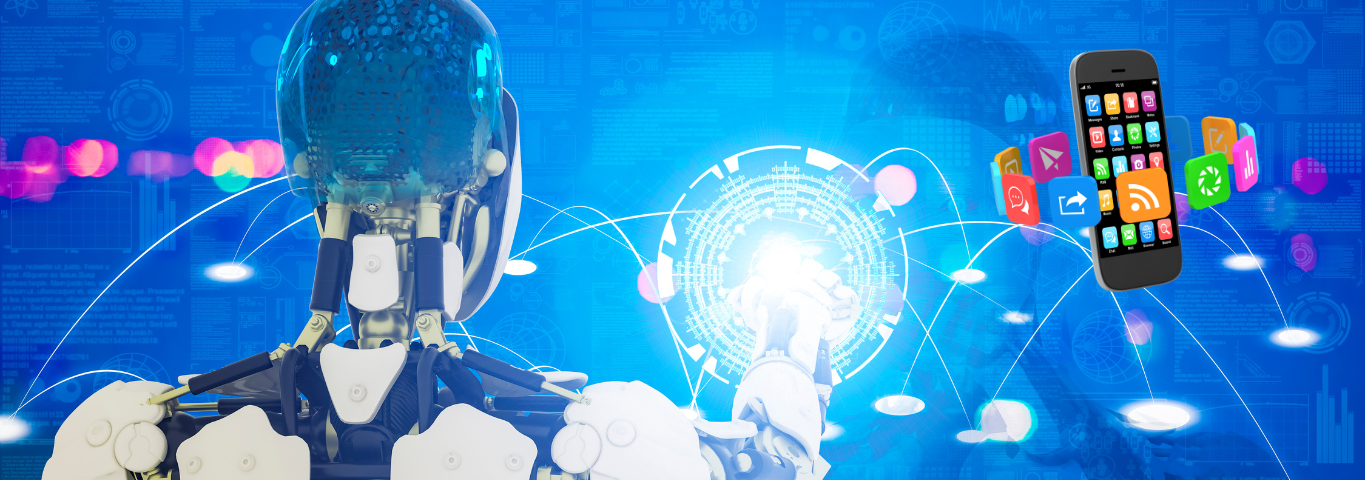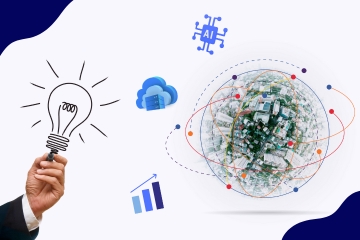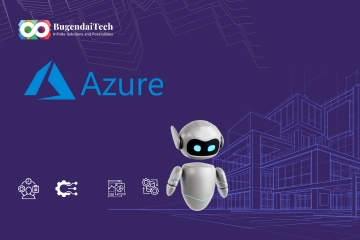The Role of AI in Mobile and Web App Development
In the fast-paced world of technology, where advancements seem to unfold in the blink of an eye, Artificial Intelligence (AI) has emerged as a game-changer, particularly in mobile and web app development. Developers are progressively using AI to improve functionality, expedite processes, and provide users with unmatched experiences as the market for creative and intuitive applications grows.
This blog will illuminate the transformative role of AI in mobile and web app development, exploring its myriad applications and the benefits it brings to developers and end-users.
What AI entails in app development?
Before diving into its applications, let's first grasp what AI entails in the context of app development. Artificial Intelligence (AI) is the term for machines that simulate human intelligence processes, mainly via the use of data and algorithms. In the realm of app development, AI technologies encompass various tools and techniques, including:
- Machine Learning (ML):
The foundation of many AI apps in app development is machine learning. It entails teaching algorithms to identify trends and forecast outcomes from input data. ML algorithms can be used for many purposes in app development, including predictive analysis and personalization.
- Computer Vision:
Computer vision involves teaching machines to interpret and analyze visual information, like images and videos. In app development, computer vision technologies can be leveraged for various purposes, including image recognition, facial recognition, and visual search.
- Natural Language Processing (NLP):
NLP is concerned with making it possible for computers to comprehend, interpret, and produce human language meaningfully. In app development, NLP is instrumental in various applications, including chatbots, virtual assistants, and sentiment analysis.
- Predictive Analytics:
Statistical algorithms and past data are used in predictive analytics to project future trends or results. In app development, predictive analytics can be applied in various ways, including user behavior prediction and resource optimization.
- Automation:
Automation involves using AI-powered tools and technologies to streamline repetitive tasks and workflows in app development. Examples of automation in app development include code generation, testing, and quality assurance.
How to streamline development processes?
One smarter way AI enhances mobile and web app development is by streamlining various processes, from ideation to deployment. Large-scale data analysis is possible using AI-powered solutions, which can provide information about user behavior, preferences, and market trends.
This data-driven approach enables developers to make informed decisions throughout the development lifecycle, leading to more targeted and practical solutions.
Moreover, AI can automate repetitive tasks like code generation, testing, and debugging, significantly reducing development time and costs. By leveraging techniques like machine learning and predictive modeling, developers can optimize resource allocation and identify potential issues early in the development cycle, thereby improving overall efficiency and productivity.
How to enhance user experience?
User experience (UX) plays a pivotal role in the success of any mobile or web application. Here, AI plays a crucial role in enhancing UX by personalizing interactions, predicting user needs, and optimizing performance.
For example, AI-powered chatbots and virtual assistants can offer real-time support and guidance to users, improving engagement and satisfaction.
Furthermore, AI algorithms can analyze user interactions and feedback to refine and customize app features, content, and recommendations. Developers can gain valuable insights into user sentiments and preferences, allowing for the delivery of more relevant and personalized experiences by harnessing the power of NLP and sentiment analysis.
What are the ways of improving accessibility and inclusivity?
Another area where AI makes significant strides in mobile and web app development is improving accessibility and inclusivity. Features like voice recognition, image recognition, and text-to-speech capabilities enable developers to create apps that are accessible to users with disabilities or special needs.
For instance, AI-driven image recognition algorithms can help visually impaired users navigate and interact with visual content. At the same time, voice-enabled interfaces offer an alternative input method for individuals with mobility impairments.
By prioritizing accessibility in app development, developers can make sure that their products reach a wider audience and adhere to inclusive design principles.
How to drive innovation and differentiation?
Innovation is key to staying at the forefront of today's competitive landscape. AI empowers developers to push the boundaries of what's possible, enabling them to create cutting-edge features and functionalities that set their apps apart from the competition.
Whether leveraging machine learning to power recommendation engines, implementing computer vision for augmented reality experiences, or using predictive analytics to anticipate user behavior, AI opens up a world of possibilities for innovation in app development.
Moreover, AI enables developers to adapt and evolve their apps in real time based on changing user needs and market dynamics.
By continuously analyzing data and user feedback, developers can identify emerging trends and opportunities for improvement, allowing for agile and iterative development processes.
Conclusion
AI is unprecedentedly revolutionizing mobile and web app development, from streamlining processes and enhancing user experiences to driving innovation and inclusivity. By leveraging the power of AI technologies, developers can create smarter, more intuitive, and more accessible applications that meet the evolving needs of users in today's digital landscape.
As AI continues to advance, its role in app development will only grow, paving the way for a future where intelligent, data-driven solutions are the norm.






Comments